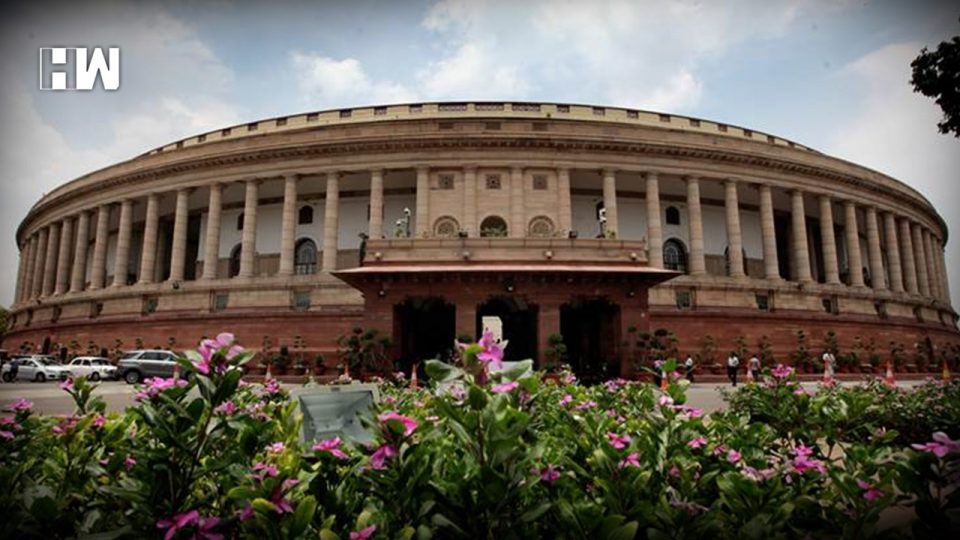Till November 17, around 43 Bills are pending in both Houses of Parliament. Out of these 43, 12 have been listed for consideration and passing
New Delhi: The Winter session of Parliament’s starts from Monday and it is expected to witness much heat as the Opposition looks to corner the Union government over issues such as the economic slowdown, Joblessness and the situation in Kashmir while the Modi dispensation seeks to push through the contentious Citizenship (Amendment) Bill, a major part of the BJP’s ideological agenda.
On Sunday Prime Minister Narendra Modi, in his customary remarks at an all-party meeting held asserted that the government is ready to discuss every issue and exhorted everyone to make the Winter Session as productive as the last one, when Parliament supported to the bifurcation of the then state of Jammu and Kashmir and scrapping Article 370, apart from several other important bills.
A total of 20 sittings are expected in parliament. A special joint sitting of both Rajya Sabha and Lok Sabha has been planned to mark the Constitution Day on November 26. This will also be the 250th session of the Rajya Sabha (upper house).
Till November 17, around 43 Bills are pending in both Houses of Parliament. Out of these 43, 12 have been listed for consideration and passing. There are 27 Bills listed for introduction, consideration, and passing.
The Winter session will be with the swearing-in ceremony for the newly elected Members of Parliament (MPs) in the Lok Sabha. before proceedings being on November 18 obituary reference will be made in both houses.
On November 17 ShivSena did not attend the National Democratic Alliance (NDA)’s meeting.
ShivSena leader and Rajya Sabha MP Sanjay Raut said that severance of ties with the Bharatiya Janata Party (BJP)-led alliance was now only a formality and that he had “learned” that our MPs would now be sitting on Opposition benches.
The Uddhav Thackeray’s ShivSena had fallen out as the BJP over sharing of chief minister’s post in Maharashtra after the two allies won a comfortable majority in the last month’s Legislative Assembly polls. The party’s lone union minister Arvind Sawant had quit as the Cabinet on November 11.
The ShivSena is working with the Congress and Nationalist Congress Party (NCP) to form a coalition government in Maharashtra.
Some important pending legislation that will be considered and passed in this session are:
1)The Chit Funds (Amendment) Bill, 2019
2)The National Institute of Design (Amendment) Bill, 2019
3) The Surrogacy (Regulation) Bill, 2019
4) The Inter-State River Water Disputes (Amendment), Bill, 2019
5) The Dam Safety Bill, 2019
6) The Transgender Persons (Protection of Rights) Bill, 2019
7) The Jallianwala Bagh National Memorial (Amendment) Bill, 2019
8) The Constitution (Scheduled Tribes) Order (Amendment) Bill, 2019
9) The Constitution (Scheduled Tribes) Order (Second Amendment) Bill, 2019
Some important new Bills likely to be introduced, considered and passed during this session apart from that 2 Bills are replacing Ordinances:
1) The Pesticides Management Bill, 2019
2)The Insolvency & Bankruptcy (Second) Amendment Bill, 2019
3) The International Financial Services Centres Authority Bill, 2019
4) The Medical Termination of Pregnancy (Amendment) Bill, 2019
5) The Citizenship (Amendment) Bill, 2019
6) The Arms Act (Amendment) Bill, 2019
7) The Personal Data Protection Bill, 2019
Bills pending in Rajya Sabha
1)The Inter-State River Water Disputes (Amendment), Bill, 2019 as passed by Lok Sabha
2)The Surrogacy (Regulation) Bill, 2019 as passed by Lok Sabha
3) The Dam Safety Bill, 2019 as passed by Lok Sabha
4) The Jallianwala Bagh National Memorial (Amendment) Bill, 2019 as passed by Lok Sabha
5)The transgender Persons (Protection of Rights) Bill, 2019 as passed by Lok Sabha
6) The Constitution (Scheduled Tribes) Order (Amendment) Bill, 2019
7) The Constitution (Scheduled Tribes) Order (Second Amendment) Bill, 2019
8) The National Commission for Indian System of Medicine (NCIM) Bill, 2019
9) The National Institute of Food Technology Entrepreneurship and Management Bill, 2019.
10)The National Commission for Homoeopathy (NCH) Bill, 2019; and NCH) Bill, 2019
In Rajya Sabha Some bills which are likely to be withdrawn
1) The Jammu and Kashmir Reservation (Second Amendment) Bill, 2019
2) The Indian Medicine and Homoeopathy Pharmacy Bill, 2005
3) The Pesticides Management Bill, 2008
4) The National Commission for Human Resources for Health Bill, 2011
5) The Indian Medical Council (Amendment) Bill, 2013
6) The International Financial Services Centres Authority Bill, 2019
7) The Indian Medical Council (Amendment) Bill, 1987
The Citizenship (Amendment) Bill, 2019:
The Modi government is likely to push for passage of the Citizenship (Amendment) Bill that seeks to amend the Citizenship Act, 1955 to make Hindu, Sikh, Buddhist, Jain, Parsi, and Christian illegal migrants from neighboring countries such as Afghanistan, Bangladesh, and Pakistan, eligible for citizenship of India.
The Citizenship bill is a major plank for BJP as it is aimed at granting nationality to non-Muslim immigrants from neighboring countries.
The Citizenship Act, 1955, one of the requirements for citizenship was that the applicant must have resided in India in the last 12 months as well as for 11 of the previous 14 years.
From 11 years to six years the amendment proposes to relax the second requirement.
The NDA government had introduced the bill in its previous tenure but could not pass it through due to vehement protests by opposition parties. This bill has lapsed as the dissolution of the last Lok Sabha.
The bill is likely to be introduced by the government freshly in the Winter Session. It will have to be passed by both Houses in order to become a law.
As an independent media platform, we do not take advertisements from governments and corporate houses. It is you, our readers, who have supported us on our journey to do honest and unbiased journalism. Please contribute, so that we can continue to do the same in future.

